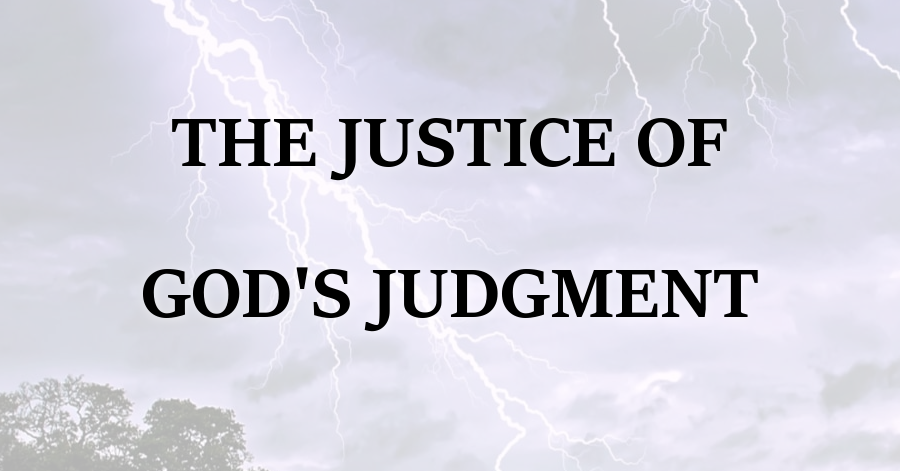
Andrew R. Fausset (1821-1910)
Remarks on Jeremiah Chapter Five
Jamieson, Fausset, Brown Bible Commentary
(1) Where the corruption of a people is universal, it is ripe for judgment. The godly men of a nation are the salt which preserve it from that utter corruption which is sure to be followed by fearful destruction from the Lord. The pious in a country are so many guarantees for its stability, as God is willing, as in the case of Sodom, to spare a guilty people for the sake of the righteous men in it: so that those are the truest patriots who serve God most faithfully, and such constitute the palladium of their country’s safety (Jer. 5:1).
(2) Hollow professions will not stand the scrutinizing gaze of that God whose eyes are upon the truth. He sees thoroughly at a glance whether the chastisements which He has sent have produced the unfeigned repentance which He looks for as their graciously designed effect. “And though they say, The Lord liveth; surely they swear falsely. O Lord, are not thine eyes upon the truth? thou hast stricken them, but they have not grieved; thou hast consumed them, but they have refused to receive correction: they have made their faces harder than a rock; they have refused to return.” (Jer. 5:2-3).
(3) How sad it is when not only the poor and ignorant, but “the great men,” from whom better might have been expected, “break the yoke and burst the bonds” (Jer. 5:5) of God’s holy law, setting God Himself at defiance. It would be utterly incompatible with God’s righteous character to permit such multiplied and widespread transgressions to go unpunished (Jer. 5:6-9).
(4) When men disregard the duty which they owe to God, it is sure to follow that they will disregard their duty toward their neighbour. Ingratitude toward the God who has “fed them to the full” is certain to make men reckless of the relative duties which they owe to their fellowmen. They who being by profession spiritually married to Christ are utterly unfaithful to Him, are but little likely to be faithful in relation to others, wherever lust or self can have its way without fear of detection (Jer. 5:7-8).
(5) How many are ruined by persuading themselves that God will not be strict, as His Word says He will! It was thus that the Old Serpent overcame Eve, saying, “Ye shall not surely die.” Sinners are unwilling to own that any message is from God which thwarts their corrupt inclinations, and disturbs them in their sins. When warned by the minister, in the name of Jehovah, of the judgments about to follow on account of their sins, they whisper to themselves, if not openly, “It is not He: neither shall evil come upon us” (Jer. 5:12-13). They hereby make themselves as fuel ready for the fire, which the word of God shall kindle to devour them (Jer. 5:14). His means of punishing are without limit: He can bring trouble on those who displease Him, from places and causes very remote, as well as from near.
(6) In the midst of judgment He remembers His covenant with His elect, and therefore to His threats He adds His gracious promise, like a gleam of sun-light bursting from the angry-looking cloud, “Nevertheless… saith the Lord, I will not make a full end with you” (Jer. 5:18). His people shall, by His humbling chastisements, be led to inquire, “Wherefore doeth the Lord our God all these things unto us?” Then shall they be taught to perceive the exact righteousness of God’s retributive justice, so that they may read their sin in their punishment (Jer. 5:19). They forsook God; therefore they have been forsaken by God: they served strange gods when in their own land; therefore they have had to serve strangers in a land not theirs.
(7) How marvelous the perversity of many! They “fear not” God, though they have “eyes to see” (Jer. 5:21) the manifestation of God’s power exercised with such majesty, and at the same time such love, toward us, in His having set the sandy shore as a bound which the roaring waves, however they toss themselves, cannot pass over (Jer. 5:22). They are not even moved to reverent gratitude toward Him by His beneficence in giving us the fertilizing “rains” and “appointed weeks of harvest” (Jer. 5:24). Hence, God at times is moved by national guilt to withhold national mercies: for in prosperity men wax so self-satisfied that they have little thought save of self-indulgence, and are mostly indifferent to the claims of mercy and justice: so that adversity is a blessing in disguise, if it in any way draws them out of their selfishness toward God.
(8) When the officers in church and state are corrupt, it is generally accompanied, if not preceded, by a thorough corruption of the people. “A wonderful and horrible thing is committed in the land; The prophets prophesy falsely, and the priests bear rule by their means; and my people love to have it so: and what will ye do in the end thereof?” (Jer. 5:30-31). When unsound doctrine and a low standard of morals are set forth by the leaders of the people, it is generally because the people “love to have it so” (Jer. 5:31): populus vult decipi, et decipiatur [If the people wish to be deceived; let them be deceived]. Let us seek to hear not so much what is palatable to our corrupt hearts, as what is profitable for the salvation of our souls!
